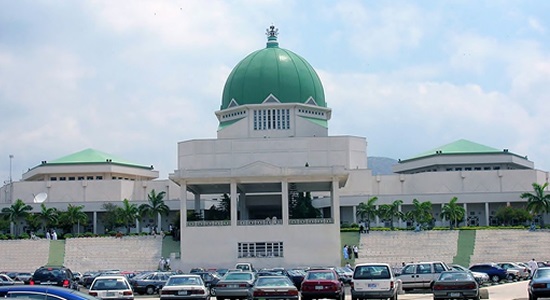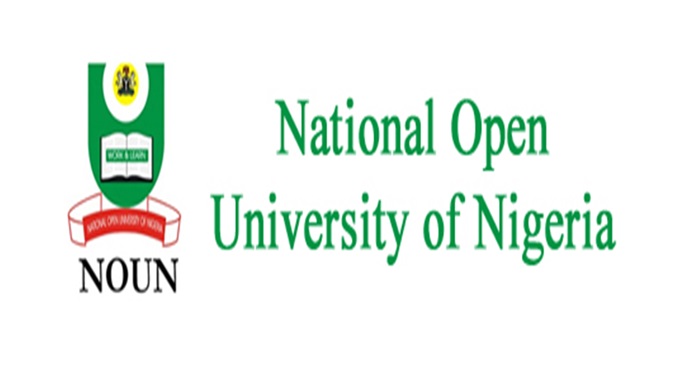The National Assembly is now set to begin a clause by clause consideration of the proposed amendment to the 1999 Constitution of which a report was laid last week.
If the amendment sails, it would mark a great achievement for the 8th Senate going by the content of the alteration and the time within which the feat was achieved.
The process began two years ago after the inauguration of the 8th National Assembly led by Dr Bukola Saraki as the President of the Senate and Hon. Yakubu Dogara as the Speaker of the House of Representatives.
If the national assembly succeeds in passing the amendment, it will go down in history for going through the process within the shortest period.
The 7th Senate had attempted an amendment and passed it close to its expiration but former President Goodluck Jonathan withheld assent over certain sections of the amendment.
Jonathan had then insisted that an amendment which removes the power of assent from the President in a Constitution Review Process will not get his approval.
The amendment process died a natural death upon the expiration of the 7th National Assembly prompting the 8th legislature to begin a fresh process in 2015.
Our correspondent who got the proposed amendment reports that many key areas of the Constitution are proposed for amendment if the lawmakers favour them on Tuesday.
Notable among the proposal is the amendment of the clause which allows the executive to spend money for up to six months pending when the budget is approved by the National Assembly.
Section 82 of the Constitution reads: “If the Appropriation Bill in respect of any financial year has not been passed into law by the beginning of the financial year, the President may authorise the withdrawal of moneys in the Consolidated Revenue Fund of the Federation for the purpose of meeting expenditure necessary to carry on the services of the Government of the Federation for a period not exceeding six months or until the coming into operation of the Appropriation Act, whichever is the earlier:
However, the Constitution review committee proposed an amendment to substitute the word “six” with the word “three” and completely deleting “or until the coming into operation of the Appropriation Act whichever is earlier:”
The proposal also applied to state governors.
Another proposed amendment is the inclusion of the former Presidents of the Senate and former Speakers of the House of Representatives as part of the Council of State.
Currently, members of the council include: The President, who shall be the Chairman; the Vice-President, who shall be the Deputy Chairman; all former Presidents of the Federation and all former Heads of the Government of the Federation; all former Chief Justices of Nigeria; the President of the Senate; the Speaker of the House of Representatives; all the Governors of the states of the Federation; and the Attorney-General of the Federation.
However, former Presidents of the Senate or Speakers who were impeached would not make part of the Council.
Also forming part of the proposal is the removal of some items like agriculture, health from the Exclusive List and vesting them in the concurrent list so that state governments can make laws on them in their states.
The proposed amendment also seeks to clip the excesses of state governors by granting financial autonomy to State Legislature and Judiciary.
Whereas the executives in the state are financially responsible to the legislatures and judiciary, the 8th National Assembly proposes to free the two arms of government from the shackles of the executive.
The proposed amendment reads: Any amount standing to the credit of the House of Assembly of the State, and Judiciary, in the Consolidated Revenue Fund of the State shall be paid directly to the said bodies respectively; in the case of judiciary, such amount shall be paid directly the heads of the courts concerned.
Further proposals to the Constitution amendment seeks to grant partial financial autonomy to the local governments. The National Assembly proposes that the Local governments shall maintain an account called the Local Government Account into which allocations from the federal government shall be paid directly.
Furthermore, the proposal completely ruled out caretaker committees as it’s clearly stated that any local government council that is not democratically elected shall not be recognised, not allowed to function and will not receive any allocation from the federation account.
Even the salaries of Primary school teachers have been secured under this proposal as their payment will now be made directly to a body if the proposal scales through the legislature and executive.
“The Federation Account Allocation Committee shall deduct and remit the salaries of primary school teachers to a body as may be prescribed by the House of Assembly of each State.”
The amendment also proposes that The President should deliver a state of the nation address every year on the first legislative day in May at a joint session of the National Assembly.
The proposed amendments are indeed numerous and they will affect the very fabric of our nation.
The national assembly will begin consideration of the proposed amendment on Tuesday and approval shall be given by electronic vote.




















